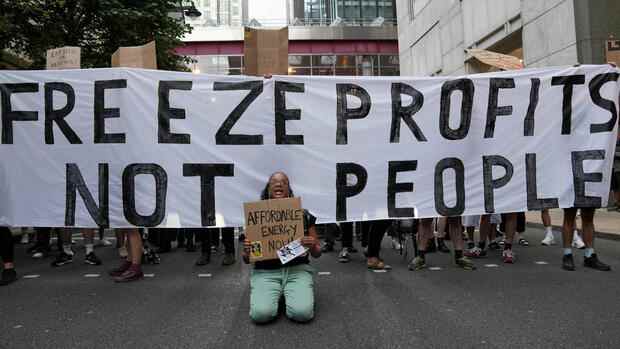Around six months later, however, the situation in the United Kingdom is more explosive than in many of its European neighbors. From October, energy costs for consumers will rise by around 80 percent as the regulator raises the price cap.
“Everyone is trying to get as much gas as possible right now and that is driving up prices for everyone,” explains Greg Jackson, head of British energy trader Octopus Energy, in an interview with Handelsblatt.
This hits many Brits particularly hard, as the vast majority heat with outdated gas boilers and homes are poorly insulated. On the other hand, there are hardly any gas storage facilities like in Germany. “We have to be prepared that it can take two or three years to replace gas from Russia, bring renewable energy to market and improve energy efficiency,” says Jackson. Only then could prices go down permanently.
Top jobs of the day
Find the best jobs now and
be notified by email.
The company is the fifth largest energy supplier in the UK with more than three million customers and reported sales of just over £2 billion for the financial year ended April, around 2.3 billion euros, with an operating loss of around £32 million.
Octopus, which also offers services for intelligent energy management with its Kraken technology platform, is now active in eight countries, including Germany.
>> Read also: Electricity supplier Octopus Energy is stirring up the German energy market – with the help of an ex-US Vice President
In Britain, Jackson has been pushing for months for the British government to intervene in the gas and electricity markets. “But not to help the energy companies, but to protect consumers and corporate customers,” emphasizes the 50-year-old.
The Octopus boss therefore also welcomes the new government’s aid measures. Prime Minister Liz Truss wants to freeze gas prices at the current level for two years from October 1st. Companies will initially be supported for six months. The state wants to take over the costs of around 150 billion pounds and finance them with new loans.
Octopus boss advocates tax on excess profits
“Without this state aid, many families would no longer have been able to shoulder the sharply rising energy costs,” says Jackson. The government has now “bought time” to combat the crisis in the long term. It is important to separate the development of electricity prices from gas prices. “The price of gas should no longer determine the cost of electricity,” Jackson said.
money tap on
150
billion pounds
calculates the British state for the gas price cap.
He thinks it’s right that the government in London now wants to negotiate with the producers of renewable energies and nuclear power so that they can give up part of their excess profits. “It is very difficult for any energy company to justify so-called excess profits in this crisis, in which households, companies and the public sector are under extreme strain.”
He is concerned about possible liquidity bottlenecks on the energy market. The “Financial Times” recently reported that the British gas supplier Centrica has massively increased its liquidity cushion with the help of banks. “I think governments need to be very careful that we maintain a stable, liquid market,” Jackson said.
The risks have also been recognized in London’s government district: the Treasury and the Bank of England want to provide short-term financial aid for energy wholesalers who run into bottlenecks.
However, Jackson sees the responsibility above all for the companies that would have to hedge their price risks through corresponding counter-transactions. The almost 30 energy companies that went bankrupt in Great Britain last year failed to do so. While Octopus doesn’t have any liquidity problems, it’s “not a profitable environment for all energy traders right now,” Jackson said.
The 50-year-old used to program video games and then founded the energy provider as a tech pioneer with the help of financial investors in 2015.
(Photo: Octopus Energy)
In the German market, Jackson is particularly following the newly flared up debate about nuclear energy: “For me personally, it was always clear that it is better if existing nuclear power plants do not produce any carbon than if we produce electricity with coal-fired power plants, for example.” But the most important thing is now that more renewable energy would be used as soon as possible.
>> Read also: Lifetime extension light: Two nuclear power plants remain as an emergency reserve
In general, the energy manager does not believe in creating new taboos in the current situation. For a transitional period, he could also accept new oil and gas drilling in the North Sea, as well as the controversial fracking of shale gas, which the British government wants to allow again after the 2019 ban. However, the prerequisite is that the residents agree.
Price reductions of up to 50 percent if customers live close to a wind farm
He is similarly pragmatic when it comes to wind farms: “80 to 90 percent of Britons are willing to accept a wind turbine within a ten-kilometer radius if they get cheaper energy in return,” says the Octopus boss. The company has set up a fan club that promises its members price reductions of up to 50 percent if they live near a wind farm.
But Jackson warns against setting the course in the wrong direction: “What we shouldn’t do is make long-term investments to solve a short-term problem.” fossil fuels are bound. The future belongs to the expansion of renewable energies to “create a cheaper, cleaner and more resilient energy system”.
More: Billions in assets, millions in profits: King Charles and his family business
